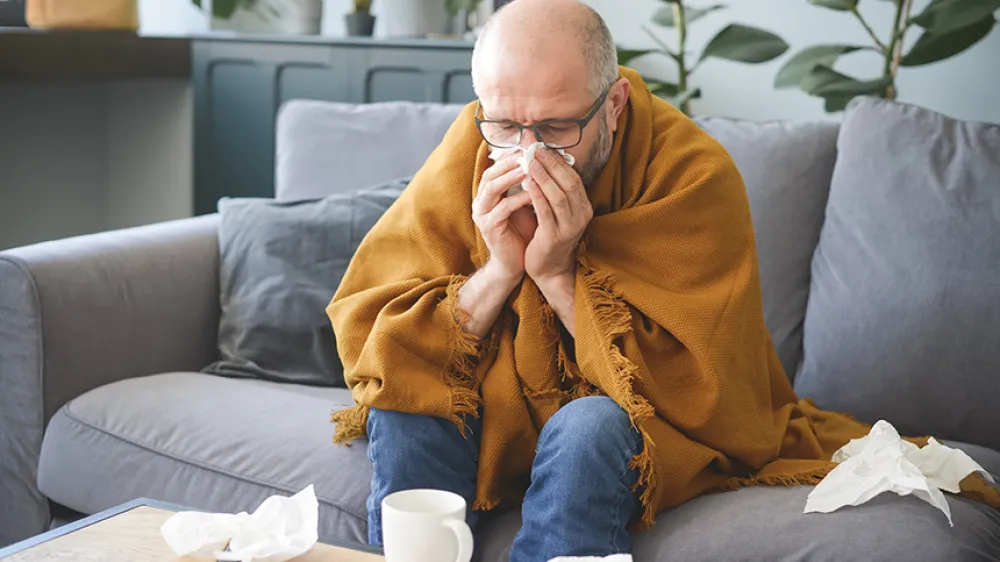Providing your location allows us to show you nearby locations and doctors.
Are you congested? Feel better with these tips

01/11/2022
Sometimes, it is hard to tell them apart. Thanks to the barrage of over-the-counter medications, what to do about them can be mind-boggling. There are certainly symptoms that can help you determine what is making you feel under the weather and take the best approach to feeling better.
Dr. Alberto Gavilanes Aguirre, a primary care doctor with Nuvance Health Medical Practice in Norwalk, Conn., shares his tips for proper self-diagnosis and how to stop a cold from turning into something more serious.
The common cold is caused by many different viruses that are easily spread in the winter when we are in close quarters with other people. Thanks to inflamed sinuses, you may cough, sneeze and have a runny nose or sore throat from postnasal drip. Symptoms last about a week with you likely feeling the worst on day four or five.
Because viruses are not affected by antibiotics, common colds need to run their course, generally within a week. You can prevent catching a cold with good hand washing, cleaning your home and office, and avoiding sick people.
Experiencing symptoms? Book an appointment online
If your sinus congestion persists for more than a week or you have a high fever with congestion, it is a good idea to see your doctor. Sometimes, a common cold may become a bacterial sinus infection. When you have a cold, your nasal passages are moist and stuffed up. This makes them prime spots for bacteria to grow.
You may experience cheek pain, earache, thicker mucus and high fever with a sinus infection. Your cold symptoms might have gotten better around day four or five and then returned with more severity. That's a strong indication of a secondary infection.
If you lose your sense of taste or smell, have a dry cough (no phlegm) or unexplained head pain, that could be a sign you may have COVID-19 instead of a sinus issue or cold. If you experience any COVID-19 symptoms such as cough, shortness of breath, fatigue, headache, congestion, sore throat, vomiting or diarrhea, body aches, fever or nausea, you should get a COVID-19 test and isolate from others. You should also see your physician if you are in the high-risk category because there may be treatments to help you. Book a telehealth visit with our next available doctor to be evaluated for COVID-19 symptoms and learn about the latest treatments.
If you have a sinus infection that stemmed from bacteria, you may need an antibiotic. You can build up a resistance to antibiotics if you are overexposed, have had recurrent hospitalizations or have chronic medical conditions. That's why you want to use them only when they are truly effective — not against viruses.
There are ways to stop a sinus infection. When you have a cold, take steps early on. Ignoring cold symptoms is not advised. At the first signs of a cold, drink lots of water, which thins secretions and helps keep the fluid in your nose flowing. Use a neti pot or saline spray, and take a topical decongestant to dry up that mucus.
By keeping your nose clear, you may keep yourself in the clear.
Nuvance Health Medical Practice offers urgent telehealth visit if you have any COVID-19 symptoms. Visit our COVID-19 Hub to book an online appointment. You can also search for a doctor near you here or learn more about primary care here.